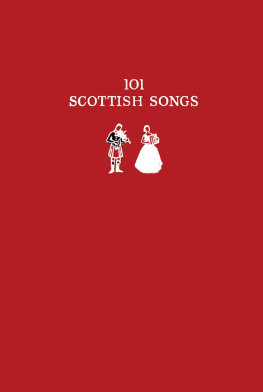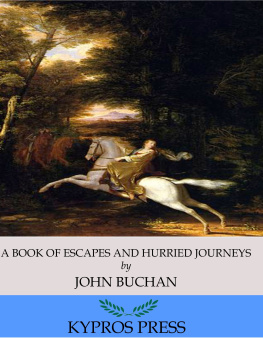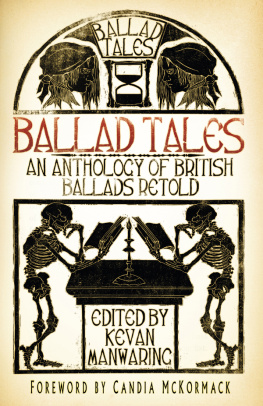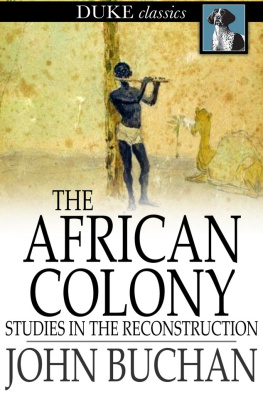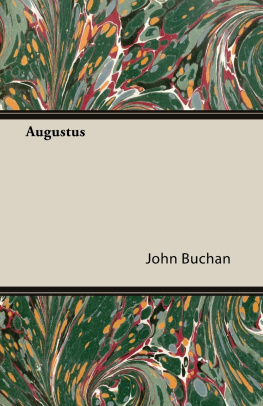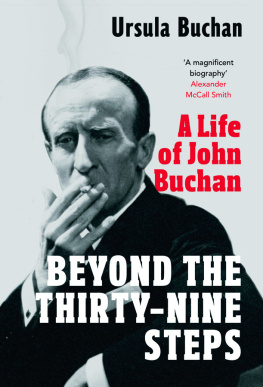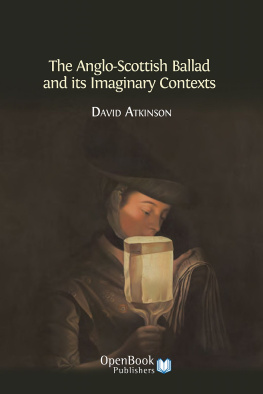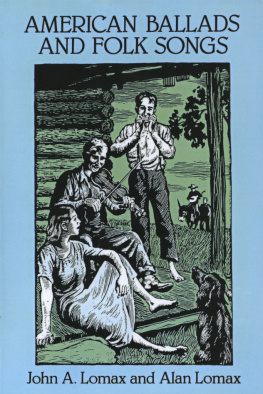ROUTLEDGE LIBRARY EDITIONS: FOLKLORE
Volume 1
THE BALLAD AND THE FOLK
THE BALLAD AND THE FOLK
DAVID BUCHAN
First published in 1972
This edition first published in 2015
by Routledge
2 Park Square, Milton Park, Abingdon, Oxon, OX14 4RN
and by Routledge
711 Third Avenue, New York, NY 10017
Routledge is an imprint of the Taylor & Francis Group, an informa business
1972 David Buchan
All rights reserved. No part of this book may be reprinted or reproduced or utilised in any form or by any electronic, mechanical, or other means, now known or hereafter invented, including photocopying and recording, or in any information storage or retrieval system, without permission in writing from the publishers.
Trademark notice: Product or corporate names may be trademarks or registered trademarks, and are used only for identification and explanation without intent to infringe.
British Library Cataloguing in Publication Data
A catalogue record for this book is available from the British Library
ISBN: 978-1-138-84217-5 (Set)
eISBN: 978-1-315-72831-5 (Set)
ISBN: 978-1-138-84220-5 (Volume 1)
eISBN: 978-1-315-73174-2 (Volume 1)
Publishers Note
The publisher has gone to great lengths to ensure the quality of this reprint but points out that some imperfections in the original copies may be apparent.
Disclaimer
The publisher has made every effort to trace copyright holders and would welcome correspondence from those they have been unable to trace.
The Ballad and the Folk
David Buchan
First published 1972
by Routledge & Kegan Paul Ltd
Broadway House, 6874 Carter Lane,
London EC4V 5EL and
9 Park Street, Boston, Mass. 02108, U.S.A.
Printed in Great Britain by
Unwin Brothers Ltd
The Gresham Press, Old Woking, Surrey
David Buchan 1972
No part of this book may be reproduced in any form without permission from the publisher, except for the quotation of brief passages in criticism
ISBN 0 7100 7322 4
For Moyra, Rhona and Gavin
Contents
This book is an exercise in an interdisciplinary discipline which is firmly established in many countries but has been rather neglected in Britain. The discipline is known variously: in Scandinavia as Folkliv, in Central Europe as Volkskunde, and in North America as Folklore. Since folklore in Britain connotes mostly triviality and untruth, a happier term for the subject is Folklife Studies, although its practitioners retain the name of folklorists. Folklorists are concerned with traditional culture, that is, the culture maintained and transmitted by word-of-mouth and by custom and practice rather than by printed document. The literary folklorist, it follows, is concerned with the literature created and transmitted by traditional means within that culture. He is also concerned with the relationship between the literature and the social and cultural context: especially with how the literature in quality, substance, and style is determined by the conditions of the society that produces it. In the following pages I have attempted to show the social context of a ballad tradition and its effects on the literature, and, conversely, the functions of the literature in the social context.
The correlation of literature and society is particularly necessary in the field of oral literature, a once vague area that has been given new definition by the groundbreaking studies of Milman Parry and Albert Lord. Working in a new field like oral literature, however, poses certain problems, and not the least of these is the lack of adequate terminology. Inevitably, one is forced into minting terms; I have tried to avoid an undue barbarity in the neologisms, but ask for sufferance. There are, again inevitably, other topics on which I crave the sufferance of that declining species, the gentle reader. Since this volume is long enough as it stands, it does no more than touch on two subjects which ideally may provoke an ethnomusicologist into investigation), and the other is the relationship between Scandinavian and Scottish (especially Northeast) balladry. A work not referred to in the text because it appeared after the relevant parts of the manuscript were completed is T. C. Smouts A History of the Scottish People 15601830; this excellent book is now the standard work on the subject.
I am very grateful to a number of people and institutions for their ready co-operation in allowing me to publish excerpted material. The quotations from the Will Walker Collectanea are printed by permission of the Corporation of the City of Aberdeen; from the Will Walker MSS. by permission of Aberdeen University Library; from Ballads and Curious Tracts, Scotland by permission of the Trustees of the British Museum; from Peter Buchan: A Collection of 17 letters, Francis James Child MSS., James Gibb MS., Letters and Papers Relating to the Harris MS., Robert Jamieson-Brown MS., George R. Kinloch MSS., Alexander Laing of Brechin MS., William Motherwell MSS., William Motherwell: A Ballad Note-Book 182627, North Country Ballads (Abbotsford MS.), Robert Pitcairn MSS., William Tytler-Brown MS. by permission of the Harvard College Library; from H. M. and N. K. Chadwick, The Growth of Literature, by permission of Cambridge University Press; from Albert B. Lord, The Singer of Tales, by permission of Harvard University Press; and from Henry Hamilton, Selections from the Monymusk Papers 17131755, by permission of the Council of the Scottish History Society.
The ur-version of the book that follows was a thesis accepted for the Aberdeen Ph.D., and I would like to thank the University of Aberdeen for the award of the Gordon Bottomley Fellowship, and to record my debt of gratitude to the late Professor John M. Lothian and to Dr James Michie. I am grateful also to the staffs of various libraries, especially those of Kings College, University of Aberdeen, and the Houghton Library, Harvard University. Above all, I am grateful to my wife, whose ability to exercise both critical intelligence and domestic tolerance has given me a pristine appreciation of that unfashionable word, helpmate.
Two final notes: parts of in Journal of the Folklore Institute and Ariel and I thank their editors for permission to use them here; numerals in brackets after a ballad title refer to that ballad-storys number in the standard collection, F. J. Child, The English and Scottish Ballads.
Abbreviations employed in the notes:
AUR | Aberdeen University Review |
FSNE | Folk-Song of the North-East, 2 vols (Peterhead, 1909, 1914). 1 vol. (Hatboro, Penn., 1963) |
PMLA | Publications of the Modern Language Association |
SHR | Scottish Historical Review |
SS | Scottish Studies |
TBC |





